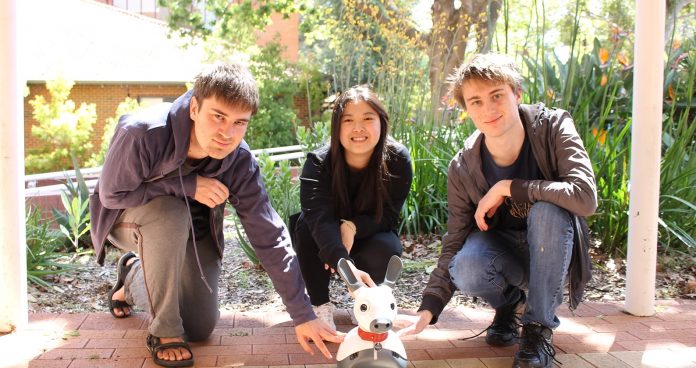Aged care residents in Perth will soon welcome MiRo, a robotic pet or ‘petoid,’ as part of a research project collaboration between Curtin University, The Brainary, and Meath Care’s Michael Lee Centre, located in Como.
MiRo is a fully autonomous, programmable, emotionally engaging, animal-like robot companion, providing users with an experience similar to having a living pet – that also speaks.
Meath Care CEO, Olive Wright, said the COVID 19 pandemic situation has highlighted the need for more resources for those living in aged care, particularly for residents who are unable to have frequent visits from family members and friends, for various reasons.
“While human touch and human care is irreplaceable, robots can potentially provide entertainment, cognitive simulation, education, information, and in the case of MiRo, a sense of companionship to aged care residents,” Mrs Wright said.
Hugh Kingsley, founder of The Brainary, a Victoria-based educational company, said MiRo is similar in size and appearance to a small dog, and even comes with a ball, bone, food bowl and kennel.
“MiRo loves to play and responds to human interaction, just like a real puppy. And with additional programming, what we like to call ‘puppy school,’ MiRo has the capability not only to provide companionship but could also potentially be an excellent resource for residents with dementia.
“This collaboration with Curtin University and Meath Care is a great example of a real-life project that can not only add knowledge but also help people live a meaningful life,” Mr Kingsley said.
Professor Tele Tan, from the School of Electrical Engineering, Computing and Mathematical Sciences and the School of Civil and Mechanical Engineering at Curtin University explained that a group of four, final year Bachelor of Computing students would be taking part in the research and development of MiRo’s ‘puppy school’ program.
“Meath Care have provided us with a list of functional requirements for MiRo in the aged care setting. For example, they would like MiRo to recognise the faces of the residents and be able to greet them by name, as well as for MiRo to be able to play quiz games with them,” Professor Tan said.
“We’re really excited to work with MiRo and come up with engaging programs for the petoid, with the ultimate goal of enhancing the daily interactive experience for aged care residents.”
The project is expected to continue until the middle of next year, providing opportunities for additional Curtin students to take part in the research and development of the MiRo app.
Once MiRo is programmed, it will be introduced to selected residents at Meath Care’s Michael Lee Centre where the daily interactions and features of the petoid will be researched, further enhancing its programming, as well as potentially paving the way for future petoid projects.



























